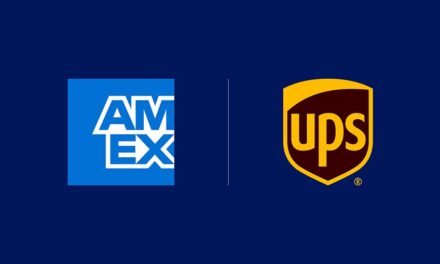
UPS Canada helps expand largest global Green Fleet
PS Canada announced it will be rolling out 139 additional cleaner-burning, propane delivery trucks. The majority of these vehicles will be deployed in Quebec, Ontario and Alberta and the rest distributed between British Columbia, Saskatchewan and Manitoba.
The propane vehicles are joining roughly 600 propane trucks already operating in Canada. The addition of these vehicles means more than a third of UPS Canada’s 2,000 package delivery vehicles will run on low-carbon fuel.
The 139 new propane trucks are expected to reduce UPS’s carbon dioxide emissions by a total of 254 metric tonnes per year, the equivalent weight of 80 UPS trucks. This would be a 35 per cent improvement compared to conventional gas engines. Additionally, particulate matter emitted from vehicles will be virtually eliminated.
The newly added propane-powered vehicles feature the latest technology in clean-burning propane engines. Propane vehicles emit about one-third fewer reactive organic gases than gasoline-fuelled vehicles. Nitrogen oxide and carbon monoxide emissions are 20 per cent and 60 per cent less, respectively, than conventional vehicles.
UPS’s global alternative-fuel fleet now stands at 1,629 vehicles – the largest such private fleet in the transportation industry – and includes compressed natural gas, liquefied natural gas, propane and electric and hybrid electric vehicles. UPS is also working with the U.S. Environmental Protection Agency on a hydraulic hybrid delivery vehicle.
PS Canada announced it will be rolling out 139 additional cleaner-burning, propane delivery trucks. The majority of these vehicles will be deployed in Quebec, Ontario and Alberta and the rest distributed between British Columbia, Saskatchewan and Manitoba.
The propane vehicles are joining roughly 600 propane trucks already operating in Canada. The addition of these vehicles means more than a third of UPS Canada’s 2,000 package delivery vehicles will run on low-carbon fuel.
The 139 new propane trucks are expected to reduce UPS’s carbon dioxide emissions by a total of 254 metric tonnes per year, the equivalent weight of 80 UPS trucks. This would be a 35 per cent improvement compared to conventional gas engines. Additionally, particulate matter emitted from vehicles will be virtually eliminated.
In the 1980s, the propane trucks currently in UPS Canada’s fleet were converted from gasoline and diesel to run on alternative fuels. The new trucks are now originally manufactured for alternative fuel use.
The UPS propane vehicles will run on liquefied petroleum gas (LPG) provided at eight on-site fuelling stations at UPS facilities in Canada. LPG is derived from petroleum during oil or natural gas processing and is cleaner-burning than regular gasoline.
The newly added propane-powered vehicles feature the latest technology in clean-burning propane engines. Propane vehicles emit about one-third fewer reactive organic gases than gasoline-fuelled vehicles. Nitrogen oxide and carbon monoxide emissions are 20 per cent and 60 per cent less, respectively, than conventional vehicles.
UPS’s global alternative-fuel fleet now stands at 1,629 vehicles – the largest such private fleet in the transportation industry – and includes compressed natural gas, liquefied natural gas, propane and electric and hybrid electric vehicles. UPS is also working with the U.S. Environmental Protection Agency on a hydraulic hybrid delivery vehicle.
UPS began deploying alternative fuel vehicles in the 1930s with a fleet of electric trucks that operated in New York City. Since 2000 alone, the company’s “green fleet” has traveled 202 million kilometres.
While continuing to develop its alternative fuel fleet, UPS has already invested more than $15 million in the effort, the company has also purchased and is operating nearly 20,000 low-emission conventional vehicles. These vehicles have regular gas and diesel-powered engines but employ the very latest technology and manufacturing techniques to reduce emissions as much as possible.
UPS pursues a wide range of socially responsible and sustainable business practices designed to reduce impact on the environment and improve communities around the world. UPS is included in the Dow Jones and FTSE4Good Sustainability Indexes, which evaluate corporations based on economic, environmental and social criteria. Learn more about UPS’s responsible business practices at www.sustainability.ups.com.












